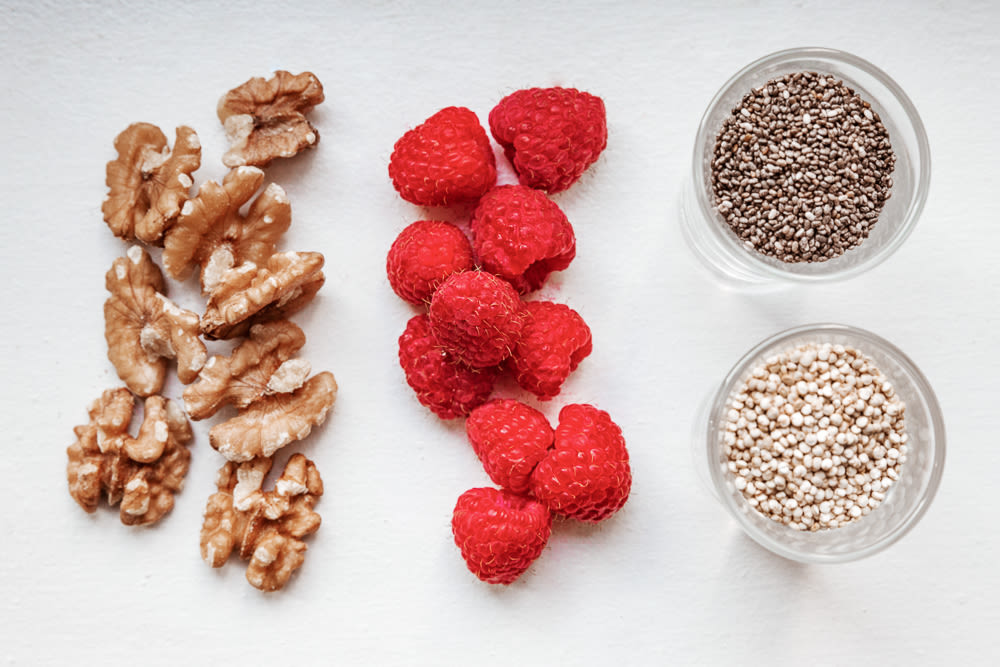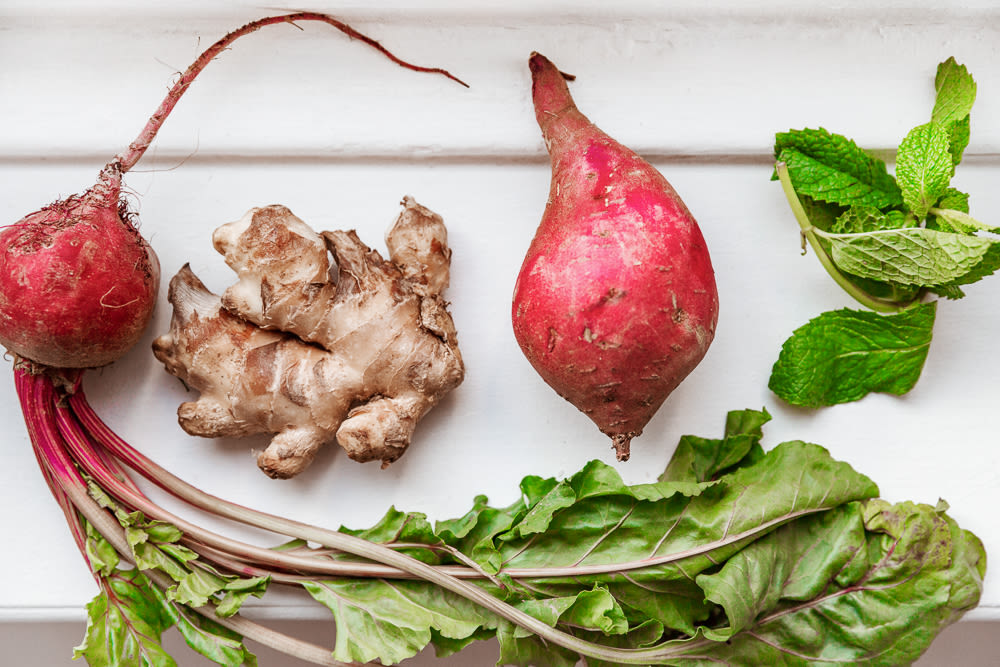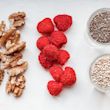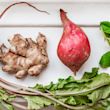The word “inflammation” gets thrown around these days like “bone broth” did a year ago. Which is to say a lot, and with very little context. Maybe you’ve heard it from your doctor or from one of the many new supplement companies popping up... Suddenly, even your aunt is sprinkling turmeric on her cauliflower. So maybe you can accept that it’s a thing now—but how, why, and what is there to do about it? Basically, should you care?
In a word, yes. An increasing amount of research over the past decade has proven that inflammation is the common thread that ties together many of today's common ailments and debilitating disorders. We’re talking everything from eczema and acne, to chronic fatigue, depression, allergies, and even arthritis or other autoimmune diseases. Even your low mood, PMS symptoms, or that vague brain fog you’ve been experiencing can be attributed to some level of inflammation.
Inflammation is the body’s perfectly smart and protective response to injury. You stub your toe or slam your thumb and straight away there’s swelling and redness—a good sign that immune cells are gathering and preparing to defend your internal environment against potential offenders, like harmful bacteria from the outside world. Sometimes the ‘injury’ is internal—say, in your gastrointestinal tract—caused by excess exposure to things like pollution, tobacco smoke, harmful chemicals in cosmetics, prescription drugs, alcohol, food allergens, etc. Again, our immune system gets temporarily fired up and bounces the bad guys without too much fuss or consequence… UNTIL the source of irritation persists for a little longer than expected. This is when inflammation response becomes chronic.
There are two major consequences:
-Always-on immune cells can get tired and confused and turn against their own kind—a condition known as auto-immunity (hello Hashimoto’s Thyroiditis, eczema, acne, psoriasis, rheumatoid arthritis, lupus, Type 1 diabetes—the list goes on).
-When your gut is chronically inflamed, it becomes less efficient at its job (to control the border between the outside and the inside of your body), and starts leaking. A leaky gut is bad news because it means all kinds of oversized molecules that would normally be bounced are let into your bloodstream, where they fire up the immune system even more and increase inflammation in random places in the body like the skin, joints, arteries, or even the brain.
Not to sound alarmist or anything! But here’s the thing: Tiny shifts in lifestyle can make a big difference in how you feel, daily and beyond. There are six that I often find myself recommending when friends of mine are looking to clear up skin, improve sleep, or sharpen focus. Nothing drastic, but every little bit helps.
Focus on a plant-based diet of mostly whole fruits and veg, nuts, and seeds.
Processed meats, dairy, sugar, and bread are delicious, but they can also be pro-inflammatory. If you’re looking to make a radical shift in diet to see what happens, sub in vegetables like naturally-syrupy beets or sweet potatoes instead for starchy sweetness, and gluten-free side-dishes like quinoa, amaranth, buckwheat and cauliflower ‘rice.’ When you do have steak-and-wine night, pay the premium on proper grass-fed, free range meat to make sure you’re getting more of the good proteins and essential fats. Which brings us to...
Get over your fat phobia.
I would like to get a tattoo on my forearm that reads “Essential Fatty Acids” all the way down because it’s what I keep going on about to clients, friends, and the occassional inflamed stranger.
Omega-3 and -6 fats, in the right ratio, work together in a remarkable way to lower inflammation and keep all our cells functioning properly. The key word here is "essential"—meaning we’re not good at making them ourselves, we need to obtain them from food...except we don’t. When was the last time you ate walnuts, flaxseeds, chia seeds, wild sardines, mungo beans, and hemp oil on a daily basis? Exactly.
Micromanage your microbiome.
Today’s a good day to start caring for your gut like there’s no tomorrow. The trillions of bacteria that live in your digestive tract are making massive waves in the world of healthcare as researchers discover the power they have over everything from our genes, to how we store fat, how we make neurotransmitters, and how efficiently we absorb the micronutrients in our food. Feed your intestinal flora its favorite foods: Lots of fiber from a variety of plant sources, resistant starches (like cooked and cooled rice or potatoes), and fermented foods like kimchi, kraut, kefir, kombucha and yogurt (if you tolerate dairy well).
Go easy on the Advil.
Anti-inflammatory and analgesic drugs like painkillers and NSAIDs (Non-Steroidal Anti-Inflammatory Drugs) are common household standbys for big and small aches and pains. Millions of prescriptions of anti-inflammatory drugs are made by doctors every year and the numbers are expected to rise as chronic conditions increase. But guess what the most common side effect of NSAIDS are? Gastrointestinal injury. Take painkillers as you will, but I’d advise being on alert for what those aches and pains are trying to tell you about what nutrition and care your body might not be getting.
Eat your anti-inflammatories.
A lot of fresh foods can lower inflammation. Micronutrients called polyphenols found in foods like onions, turmeric, red grapes, green tea and açai berries have been shown to prevent inflammation. Add turmeric to stir fries, salad dressings, curries, soups, tea, lattes. Get fresh ginger in on the regular by adding it to hot water every morning, or in smoothies, tea, and everything else. Eat fresh berries as snacks. Replace your afternoon coffee with a cup of green tea with mint. Also, omegas. (See point #2.)
Get serious about stress-management.
You’ve been waiting for me to use the S word. I left it for last because it might be the most important on the list.
Turns out the biggest byproduct of 2016—stress—is also an instigator of inflammation. It’s all thanks to the pro-inflammatory effects of chronically-elevated cortisol levels, which increases the production of inflammatory cytokines. The sooner you start a regular practice of active stress reduction, the better. All your devoted diet efforts will be in vain if you don’t. This study in Molecular Psychology proved it.
But hopefully you're coming up on a few well-deserved vacation days. Here's to a happy and healthy and less-inflamed holiday season!
—Klara Mudge
Klara Mudge is functional medicine nutritionist and curator of Both Sides Buttered, an accessible, digestible health blog with a less-cheesy approach (all puns intended). Born and raised in the Namib desert of Southern Africa, Klara has lived in Cape Town, London, Luxembourg and New York, working with clients from all over the world, and writing for a number of leading wellness sites. She's into yoga, the desert and (clarified) butter, a.k.a ghee.
Photographed by Tom Newton. While you're at it, why not peruse ITG's catalog of beauty food recipes?.









